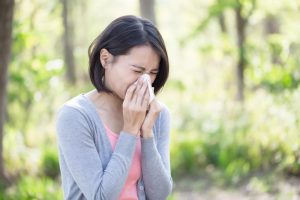Chronic obstructive pulmonary disease (COPD) makes breathing difficult for about 16 million Americans. COPD isn’t a single disease; instead, it refers to a group of lung conditions that block airflow, causing breathing problems. Two well-known examples of COPD conditions are emphysema and chronic bronchitis.
At Indus Healthcare, with offices in Pomona, West Covina, and Montclair, California, Dr. Amit Reenu Paliwal and his experienced team provide chronic care management for people with COPD. Here are our tips to help you manage your condition.
COPD symptoms
With COPD, you may feel short of breath even if you’re just doing everyday activities and not exerting yourself. Your chest may feel tight, you might not be able to take a full deep breath without coming up short or starting to cough, and you could experience wheezing. There may be times when you feel you can’t breathe at all.
Additional COPD symptoms include a deep, hacking cough often described as a “smoker’s cough,” although people who don’t smoke can also get COPD. You may produce an excess of mucus and sputum, and find yourself having to clear your throat constantly, cough up mucus, or swallow down sputum on a regular basis.
Ways to help manage your COPD
Things you can do to help minimize your COPD symptoms include:
Undergo pulmonary rehabilitation
Pulmonary rehabilitation involves learning different breathing techniques that reduce the urge to cough and help strengthen your lungs. You can breathe in and out through pursed lips, controlling your breathing while opening up your lungs. Alternatively, you can learn diaphragmatic breathing to strengthen your lower respiratory muscles by placing a hand on your abdomen and focusing on moving your hand up and down when you breathe.
Quit smoking (and other tobacco use)
While smoking is the leading cause of COPD, just being around cigarette or cigar smoke can trigger a flare-up. You might need nicotine gums or patches, prescribed medications, and/or counseling to get yourself to give up tobacco. If you’re a smoker, ask us about ways we can help you stop.
Balance your diet
Foods high in carbohydrates, like rice, pasta, white bread, and potatoes, produce the most carbon dioxide during digestion. You get rid of this carbon dioxide by exhaling. The more carbon dioxide you produce, the harder your lungs have to work to get rid of it. We can help you develop meal plans that lower the amounts of carbs you eat and increase foods that are easier for your body to manage.
Remember to keep moving
Exercise can sound like a scary word, because it’s linked with exertion in many people’s minds, and exertion can mean hard breathing. For people with COPD, this could mean an attack of wheezing or coughing. However, regular, low-impact physical activity can improve your lung capacity and help make breathing easier.
Get regular check-ups and update your immunizations
If you have COPD, you’re a chronic disease patient and need regular check-ups. Make sure you see your doctor regularly, and get recommended immunizations annually, including the flu shot. We can provide all of the care, monitoring, and medical treatment required for COPD management — the rest is up to you to take ownership of your health.
Having trouble with COPD? To schedule a consultation, call the location closest to you, or visit the contact page for more information.







